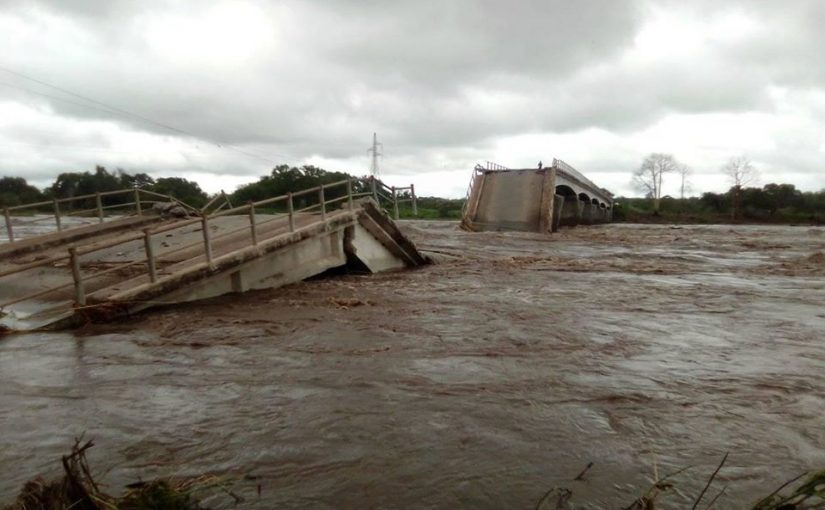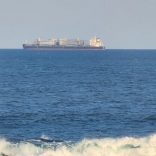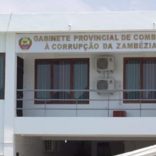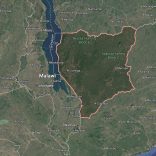Mozambique: Ship dropped anchor off Xai-Xai beach due to bad weather, now on its way to Malta
Storms knock down key bridge in Cabo Delgado

Montepuez River. Photo: Social Media
Storms that lashed the northern Mozambican province of Cabo Delgado on Thursday night and Friday morning have knocked out a bridge over the Montepuez river, cutting off access to the northern districts of the province, according to a report carried by the independent television station STV
With the bridge down no road travel is possible from the provincial capital. Pemba, to the districts of Meluco, Macomia, Muidumbe, Mueda, Nangade, Palma and Mocimboa da Praia. The bridge was built in the colonial period and has never undergone any significant rehabilitation.
The poor state of the roads and bridges in northern Cabo Delgado means that traffic to these districts is often interrupted in the rainy season.
The Cabo Delgado provincial delegate of the country’s relief agency, the National Disaster Management Institute (INGC), said there are no reports of any fatalities in the collapse of the bridge, but four people were injured who are currently receiving medical care.
The storms caused serious damage in Pemba, where over 400 houses were destroyed or damaged. 45 boats were also destroyed.
Electricity was cut off to Pemba on Thursday, but power had been restored to some parts of the city by Friday afternoon.
Speaking to Radio Mozambique, the Pemba delegate of the electricity company, EDM, Gildo Marques, said EDM teams are on the ground repairing the damage including restoring the pylons on low voltage transmission lines that were knocked down in the storm.
The stormy weather could affect all of Mozambique north of the Zambezi river. The National Directorate of Water Resources has warning of possible flooding in several river basins. Of particular concern is the Licungo basin in Zambezia province.
The recent heavy rains have saturated the soils in the Licungo basin, and the river could easily burst its banks, threatening the town of Mocuba.
The Mocuba local authorities and the INGC have been compulsorily evacuating people who had illegally built houses close to the banks of the Licungo, and moving them to resettlement areas on higher ground.












Leave a Reply
Be the First to Comment!
You must be logged in to post a comment.
You must be logged in to post a comment.